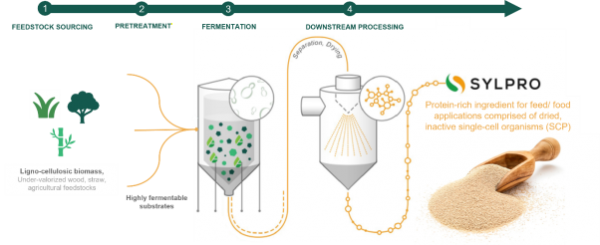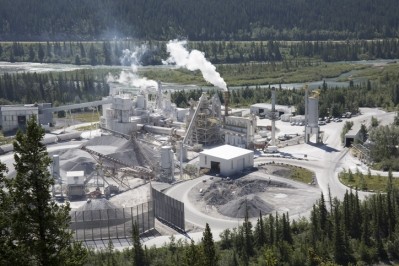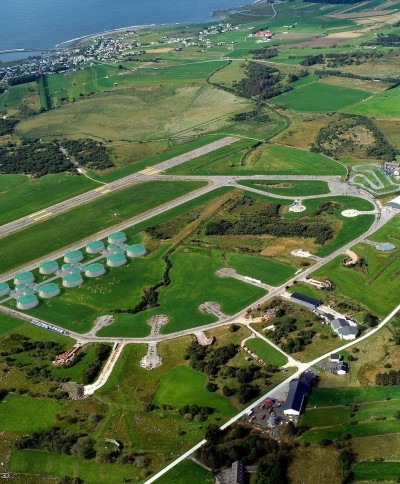Arbiom awarded €12m from French government fund to build first plant

The capital will allow the firm to begin construction of its first factory, in the Auvergne Rhône-Alpes region of France. The build will get underway this year.
Arbiom’s process transforms lignocellulosic biomass into a single-cell protein (SCP), branded as SylPro; the ingredient falls under current feed definitions of dried, inactive torula yeast and is designed to replace fishmeal, soybean meal and concentrate.
The commercial facility, near Lyon, is anticipated to come online in 2024 and is set to produce 10,000 tons of SylPro per year; it will employ more than 40 people.
“We have developed a process that can convert sugar sources into protein through fermentation. For that, we can use multiple types of renewable feedstocks. The idea is to source feedstocks as locally as possible,” Amélie Drouault, business development and partnerships director, Europe, for Arbiom, told us.
“The engineering team is in the process of finalizing the off-takes, the contracts to secure supply of the most cost-attractive, local sources of feedstocks,” said Anthony Scime, SVP strategy, Arbiom.
The company eventually plans to carry out a detailed lifecycle analysis (LCA) on SylPro’s production process, he added. “We are trying to develop a premium protein that is made in a sustainable manner.”
Validation trials
The French government financing follows Arbiom’s participation in the EU-funded Sylfeed program, which the company said validated the scale-up of its production process and the in-vivo performance of SylPro with customers and partners.
Commercials trials with a number of pet food, aquaculture, and piglet feed manufacturers, a necessary step for commercial agreements, confirmed that the yeast product confers various nutritional and functional benefits including good digestibility and palatability, along with gut health support, reported Drouault.
The initial target markets in terms of SylPro will be the aquaculture and pet food sectors. “These are two segments where we have a lot of traction at the moment, and where we have ongoing trials with potential customers,” she continued.
The commercial facility will supply customers in Europe but the plan is to also generate sales in North America, said the business development specialist.
“Part of the ambition is to be able to leverage this French plant as a springboard to additional and bigger plants. We also need to make sure the production volume gets to the right places to facilitate that.” said Scime.














